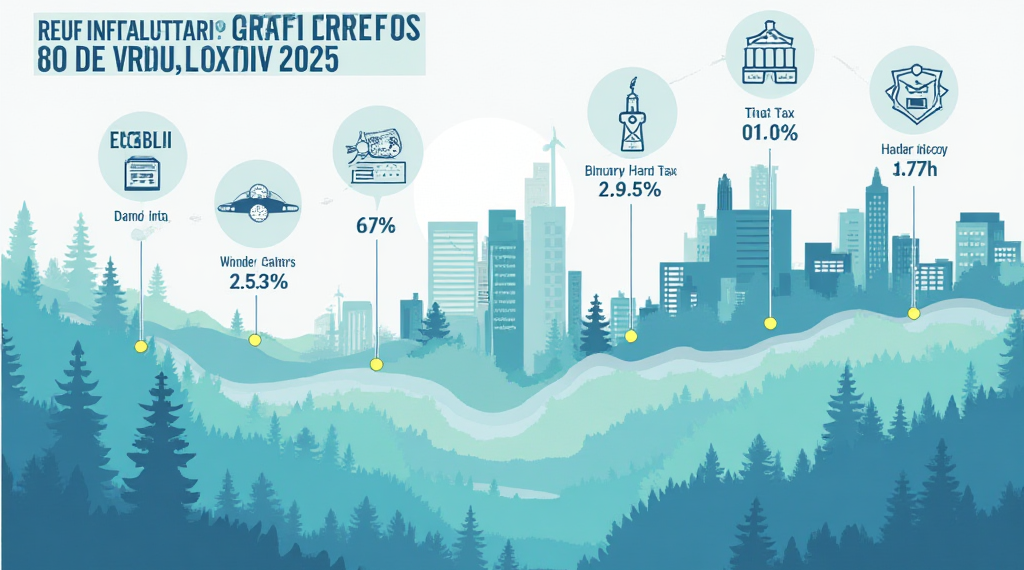<h1>2025 Strategies for Fiscal Policy in DeFi Regulation</h1>
<p>According to a recent Chainalysis report, a staggering 73% of cross–chain bridges have security vulnerabilities. As fiscal policies evolve, understanding their influence in decentralized finance (DeFi) regulations is crucial. This article delves into how fiscal policies will shape DeFi ecosystems in 2025, with a focus on regulatory trends emerging in Singapore.</p>
<h2>Understanding Fiscal Policy‘s Role in Crypto</h2>
<p>Imagine you‘re at a local market exchanging currency; you wouldn‘t just hand over your cash without understanding the rates and safety of your transaction. In the crypto world, fiscal policy operates similarly. It governs the rules of engagement concerning taxation and compliance in decentralized platforms.</p>
<h2>The 2025 DeFi Regulatory Trends in Singapore</h2>
<p>In 2025, the Singapore Monetary Authority is expected to introduce clearer guidelines for DeFi applications. These will include stricter compliance measures to bolster investor confidence. As we look at these regulatory shifts, we see that they‘re designed to protect users, much like how a shopper seeks safe products at a market.</p>
<h2>PoS Mechanism Energy Consumption Compared</h2>
<p>Proof of Stake (PoS) is like a community–driven grocery co–op where members stake their resources to earn rewards. The energy consumption comparison between PoS and traditional mining methods is stark. Reports suggest PoS can significantly reduce energy usage, catering to both environmental concerns and investor sentiments.</p>
<h2>Navigating Tax Obligations for Crypto in Dubai</h2>
<p>Dubai‘s crypto tax regulations could be a game–changer for investors in 2025. Just like understanding local tax laws is crucial for any trader, knowing Dubai’s evolving tax obligations can save investors from hefty penalties. Grasping these regulations will be essential for anyone considering entering the Dubai crypto market.</p>
<p>To summarize, understanding fiscal policy‘s impacts on DeFi regulations is paramount as we approach 2025. For those looking to thrive in this space, staying informed and adapting to the financial landscapes is crucial. Download our comprehensive toolkit today!</p>
<p><strong>Risk Statement:</strong> This article does not constitute investment advice. Please consult your local regulatory body (e.g., MAS/SEC) before making investment decisions.</p>
<p>For more detailed insights, check out our <a href=“https://hibt.com/cross–chain–security–paper“>cross–chain security white paper</a> and discover strategies for managing risks.</p>
<p><strong>Branding:</strong> OKHTX</p>
<p>According to a recent Chainalysis report, a staggering 73% of cross–chain bridges have security vulnerabilities. As fiscal policies evolve, understanding their influence in decentralized finance (DeFi) regulations is crucial. This article delves into how fiscal policies will shape DeFi ecosystems in 2025, with a focus on regulatory trends emerging in Singapore.</p>
<h2>Understanding Fiscal Policy‘s Role in Crypto</h2>
<p>Imagine you‘re at a local market exchanging currency; you wouldn‘t just hand over your cash without understanding the rates and safety of your transaction. In the crypto world, fiscal policy operates similarly. It governs the rules of engagement concerning taxation and compliance in decentralized platforms.</p>
<h2>The 2025 DeFi Regulatory Trends in Singapore</h2>
<p>In 2025, the Singapore Monetary Authority is expected to introduce clearer guidelines for DeFi applications. These will include stricter compliance measures to bolster investor confidence. As we look at these regulatory shifts, we see that they‘re designed to protect users, much like how a shopper seeks safe products at a market.</p>
<h2>PoS Mechanism Energy Consumption Compared</h2>
<p>Proof of Stake (PoS) is like a community–driven grocery co–op where members stake their resources to earn rewards. The energy consumption comparison between PoS and traditional mining methods is stark. Reports suggest PoS can significantly reduce energy usage, catering to both environmental concerns and investor sentiments.</p>
<h2>Navigating Tax Obligations for Crypto in Dubai</h2>
<p>Dubai‘s crypto tax regulations could be a game–changer for investors in 2025. Just like understanding local tax laws is crucial for any trader, knowing Dubai’s evolving tax obligations can save investors from hefty penalties. Grasping these regulations will be essential for anyone considering entering the Dubai crypto market.</p>
<p>To summarize, understanding fiscal policy‘s impacts on DeFi regulations is paramount as we approach 2025. For those looking to thrive in this space, staying informed and adapting to the financial landscapes is crucial. Download our comprehensive toolkit today!</p>
<p><strong>Risk Statement:</strong> This article does not constitute investment advice. Please consult your local regulatory body (e.g., MAS/SEC) before making investment decisions.</p>
<p>For more detailed insights, check out our <a href=“https://hibt.com/cross–chain–security–paper“>cross–chain security white paper</a> and discover strategies for managing risks.</p>
<p><strong>Branding:</strong> OKHTX</p>

















